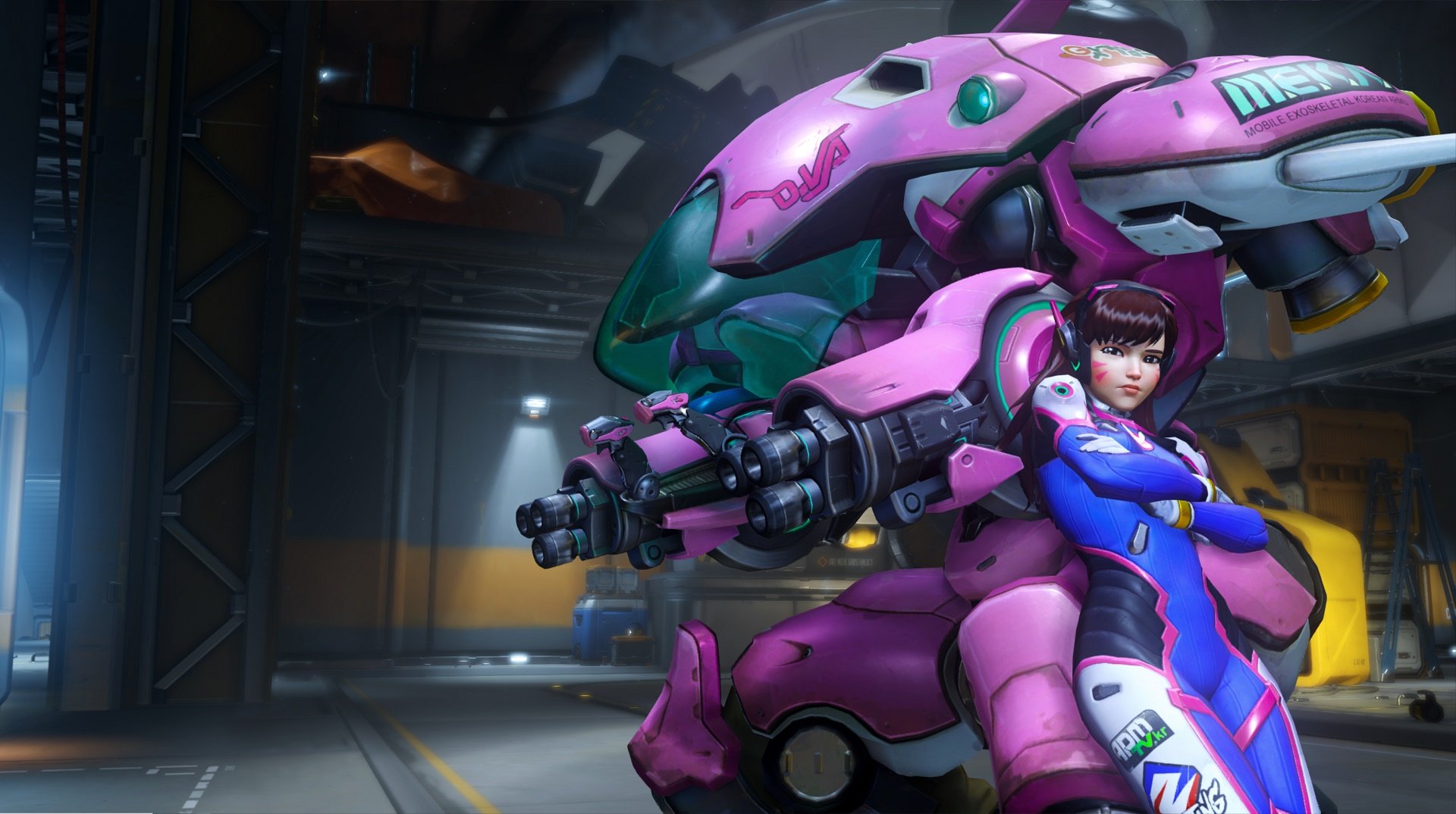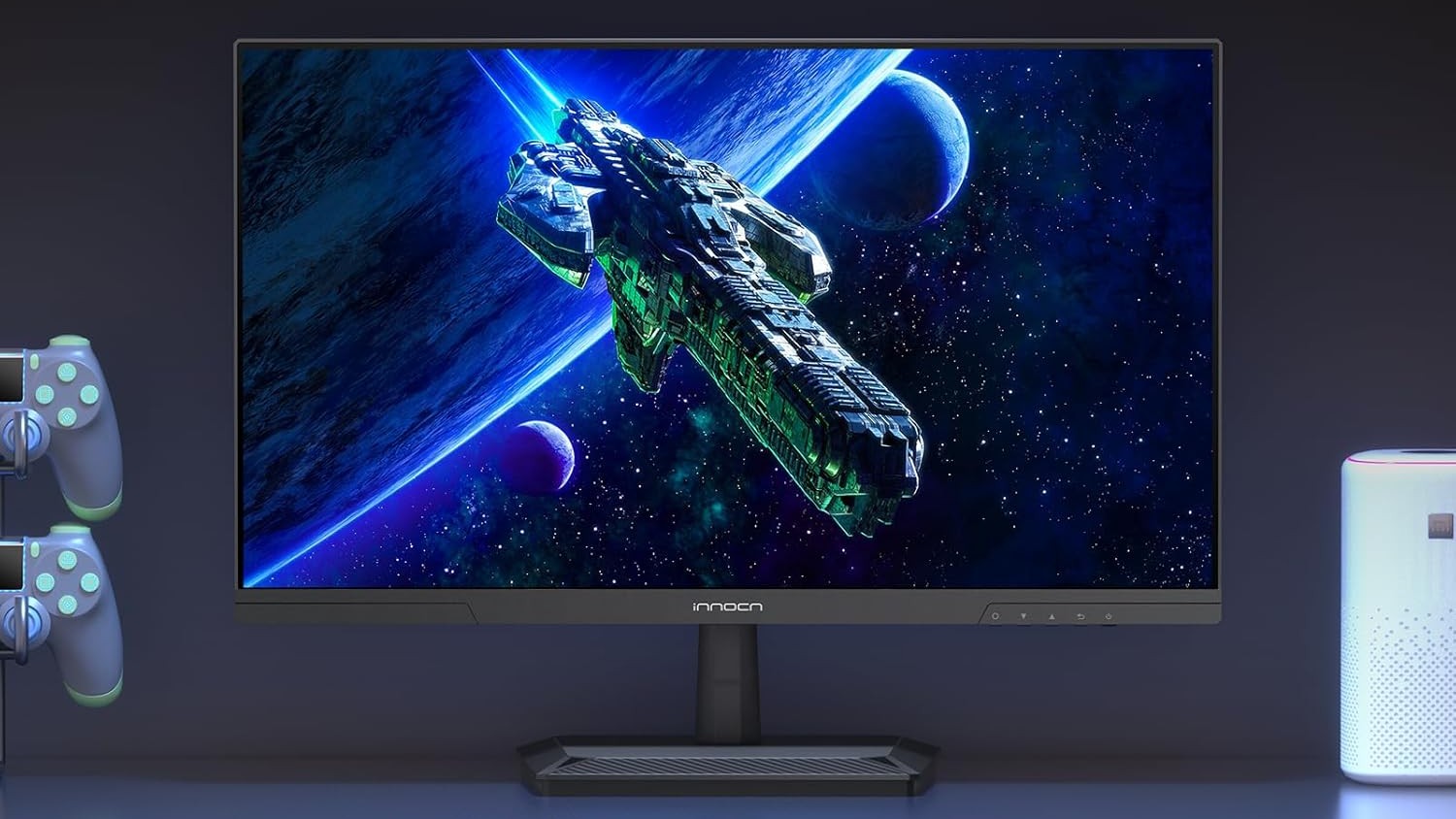
After what feels like a decade in the pipeline, Blizzard Entertainment's debut first-person shooter, Overwatch, has finally opened its doors to the public. Prior to the game's launch we've kept a close eye on the developer's latest endeavour, and between numerous pre-release beta tests, it has built up prestige and intrigue.
After accumulating my fair share of time on Overwatch's glitzy battlefield, it's not only transpired to be a welcome addition to Blizzard's line-up, but one of the most gratifying multiplayer shooters of this generation.
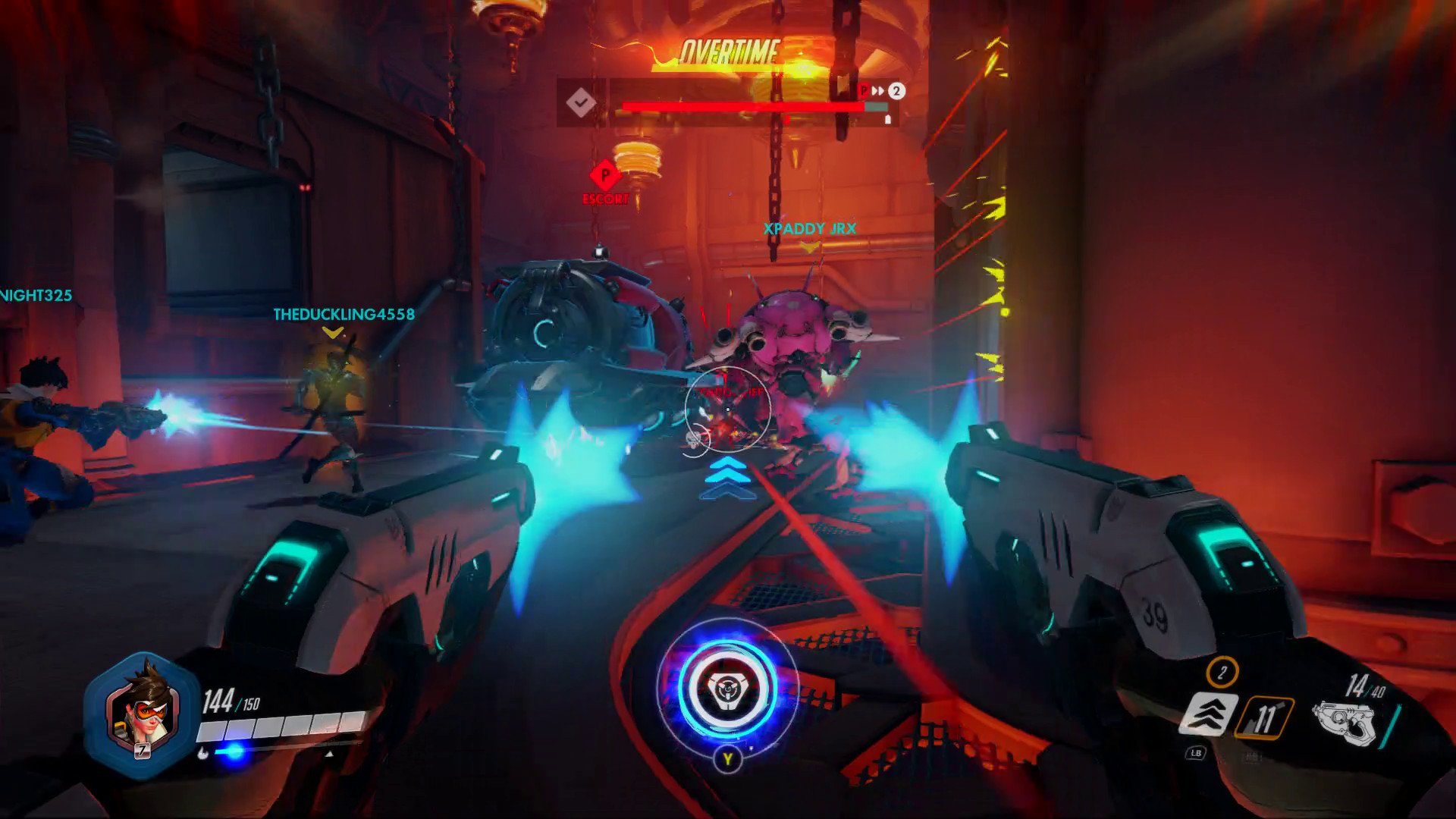
Cheers, love! The cavalry's here!
Gameplay
Overwatch's biggest strengths come from its robust gameplay and flawless mechanics, which have been carefully balanced to complement one another. Where one character has an advantage, another will counter it, delivering consistent gameplay across online matches.
The game brings together the best in a decade of shooters, and while it feels familiar, never fails to add something new into the mix. The game's vigorous yet precise execution provides a consistent platform for multiplayer warfare, without being masked behind its cinematic style. This is amplified by the consistent 60 FPS output, a target the majority of its competition still fails to accomplish on consoles.
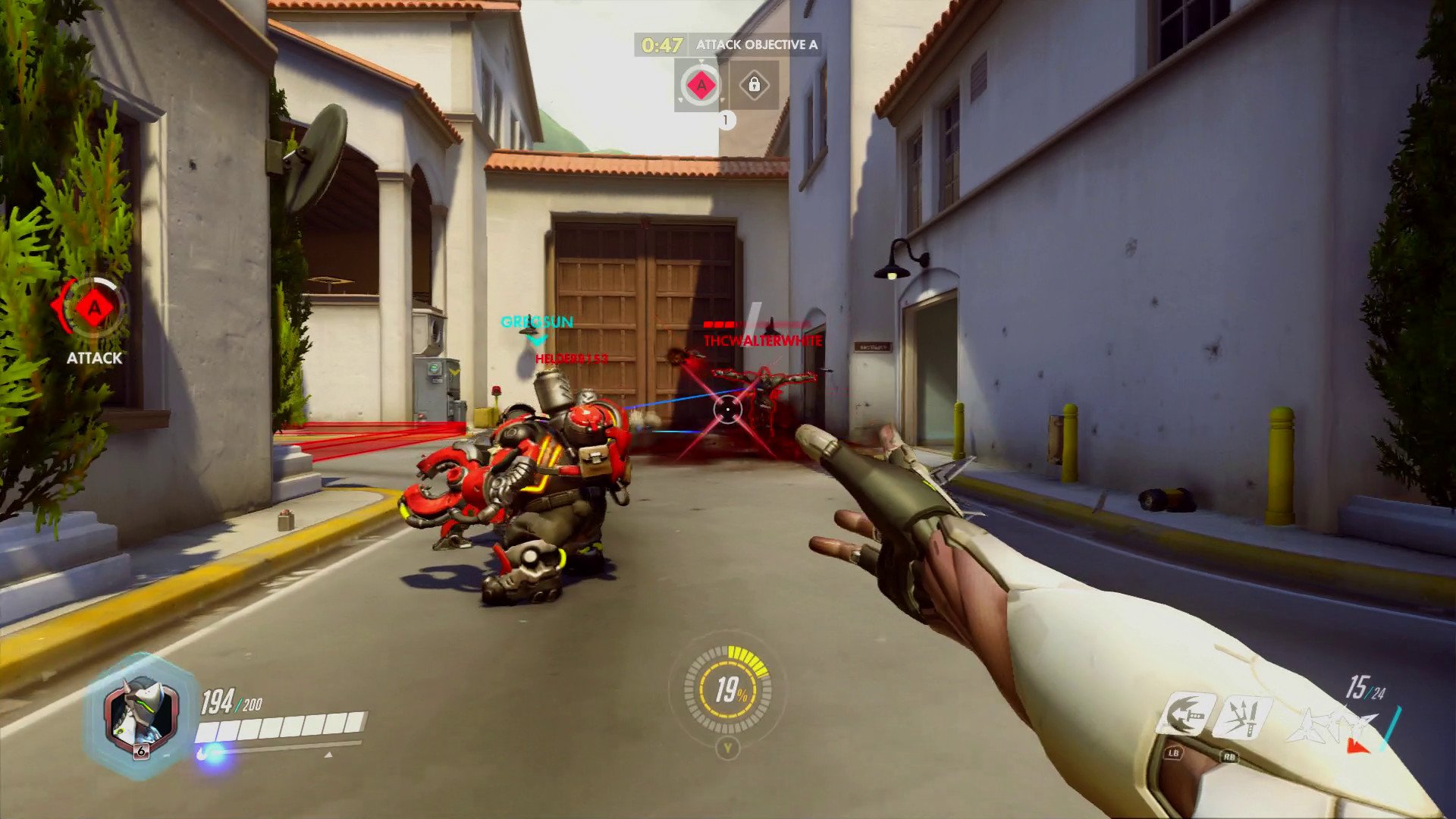
On paper, Overwatch resembles a simplified shell of a shooter, taking influence from a number of blockbuster hits of the past ten years. By doing this, Blizzard has managed to flawlessly interlock a range of disparate mechanics into a single experience, without any superfluous elements. Unlike many modern shooters that are unnecessarily spiced with complexities, everything in Overwatch has a purpose, which contributes to the overarching positive experience.
"Consistency across the board is one of the most compelling aspects of Overwatch"
In this regard, combining the refined gameplay of Halo and the cast of League of Legends into a single game has proven hugely successful. Unifying the traits of such different games could have ended up as a cluttered abomination, but fine-tuning on Blizzard's end has created an engaging FPS experience.
This consistency across the board is one of the most compelling aspects of Overwatch, creating a substantial platform for competitive scenarios. Blizzard has high hopes for the title in the eSports scene and this formulaic, undeviating gameplay will be the reason for its success. The game's design accommodates objective-based professional play and looks to be a global smash-hit across major eSports leagues.
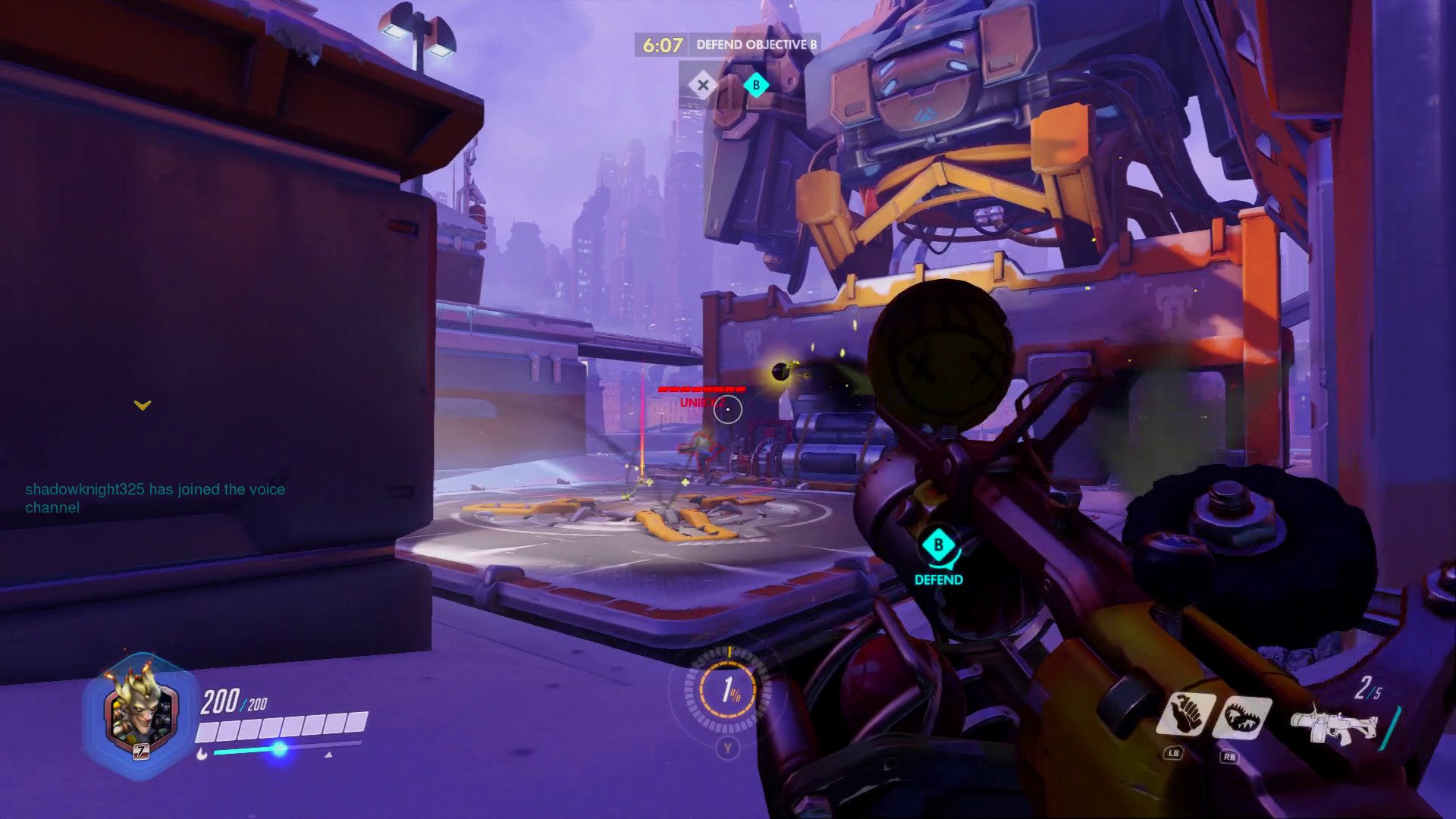
Oh, let's break it down!
Character Design
What raises Overwatch from a good shooter to a great one is the game's cast, which features twenty-one heroes, each with their own engaging personalities. The effort Blizzard has put into these characters is clear from the outset, with their own stylish designs, catchphrases, and field abilities. This character design is complemented by every other aspect of the game, which continues to build on their believable personas.
In Overwatch's varied roster there's a hero for everyone, with huge diversity in almost every aspect. The game's lineup is packed with different play styles, ages, races, and genders, all of which contribute to making each person firmly distinctive. This makes it relatively easy to differentiate between each member of the game's super-squad, which is key for success during battle. When each player has their own unique abilities and weapons, adapting your approach to identifying player weaknesses can be a huge advantage.
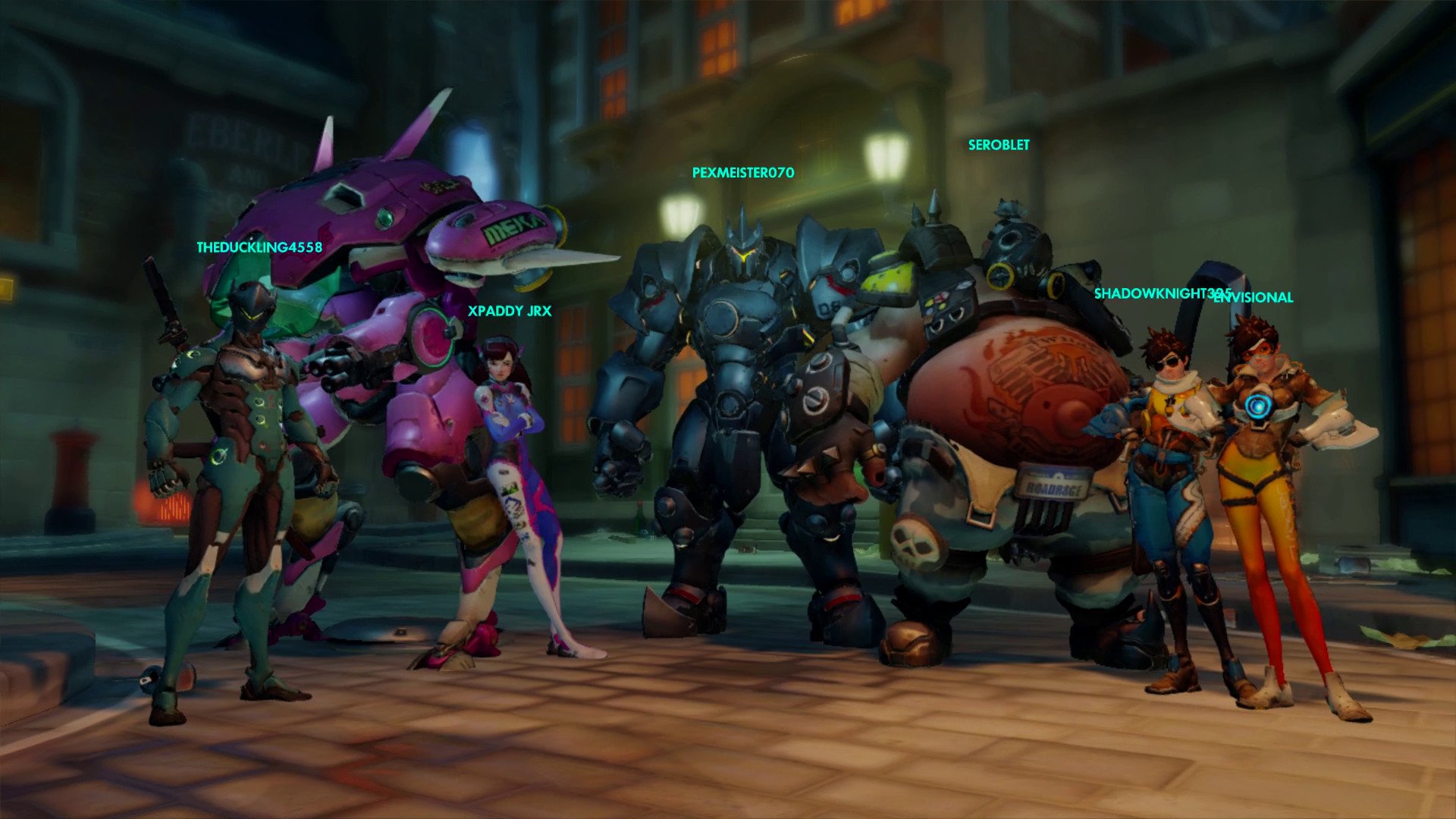
"A huge effort has been invested into the lore around each character"
As with most Blizzard games, a huge effort has been invested into the lore around each character and how they fit into the underlying universe. That said, in no way is Overwatch a story-driven experience, but the fine details for each character continue to build on their personalities. While on the surface it may seem that Overwatch's story lacks a substantial plot, the game is littered with snippets of a more complex world. This could've been more explored in more depth over the course of the game, but is yet to be successfully accomplished by any modern online FPS. In this instance, it's understandable why the decision was made to place a lesser focus on the narrative when previous attempts from other franchises have been far from perfect.
Although Overwatch never strays behind the odd corny one-liner during battle, it's light-hearted humour adds to the likability and charm of the cast. The game's tone is a breath of fresh air in today's industry, where a majority of dominant shooters are masked with grit and grey. The vibrant colors in Overwatch's art style massively contribute to the clear and refined combat, popping the unique characters from the surrounding geometry.
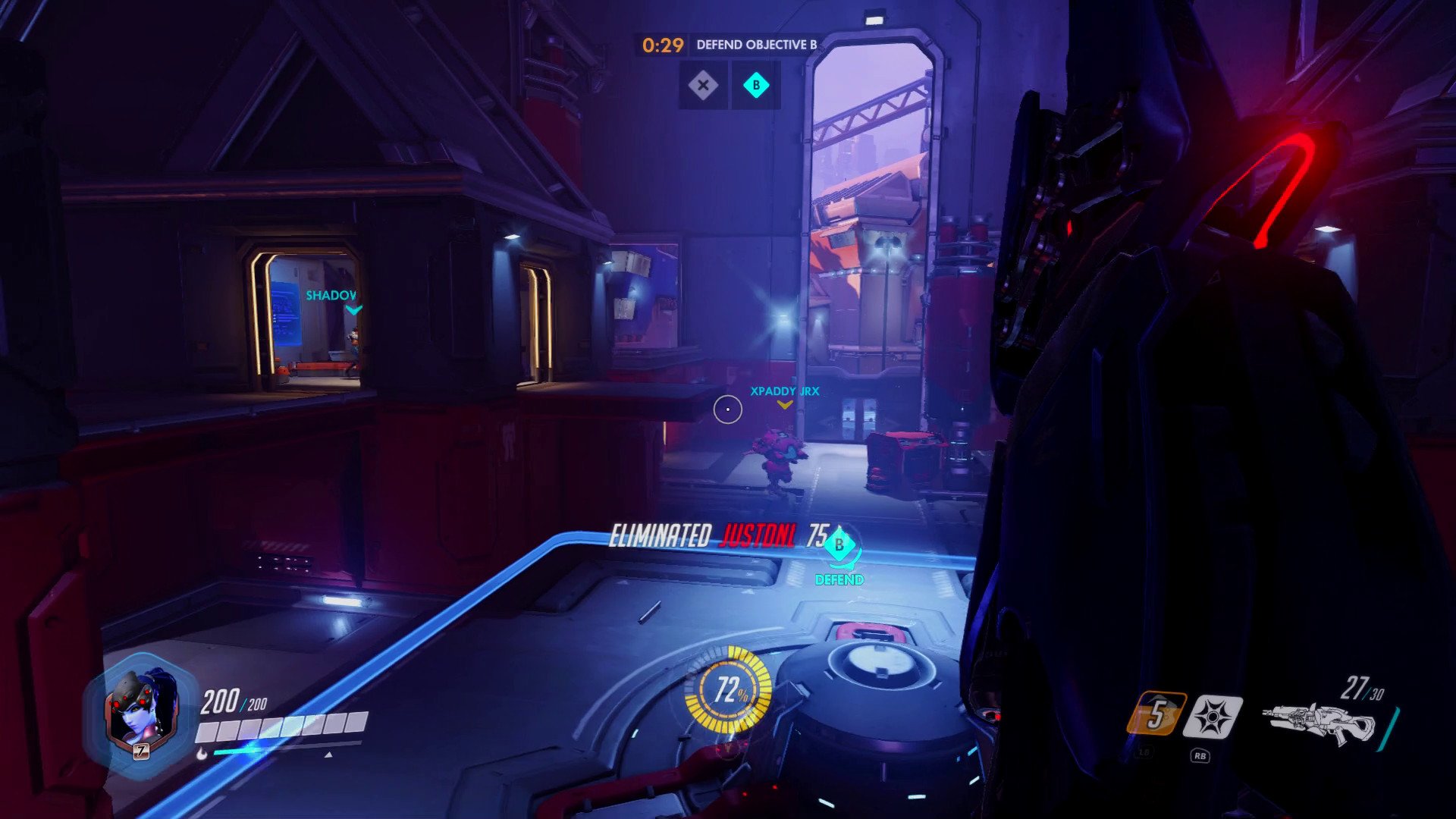
Perhaps Overwatch's greatest accomplishment is in its balancing, which brings together the vast roster of unique characters into a cohesive arena. With such a varied cast, the balancing of weapons and abilities is exceptional, averting what could have been a rather cluttered experience. Blizzard has managed to mould each character into a solidified package without any heroes being at a significant advantage. As with any multiplayer experiences, some scenarios do have irregularity due to the nature of player-versus-player combat.
Overwatch also places a heavy focus on coordination and how the composition of a team can sway a match's outcome. This originates from the game's class-based design, which divides the characters up by their offensive and defensive abilities.
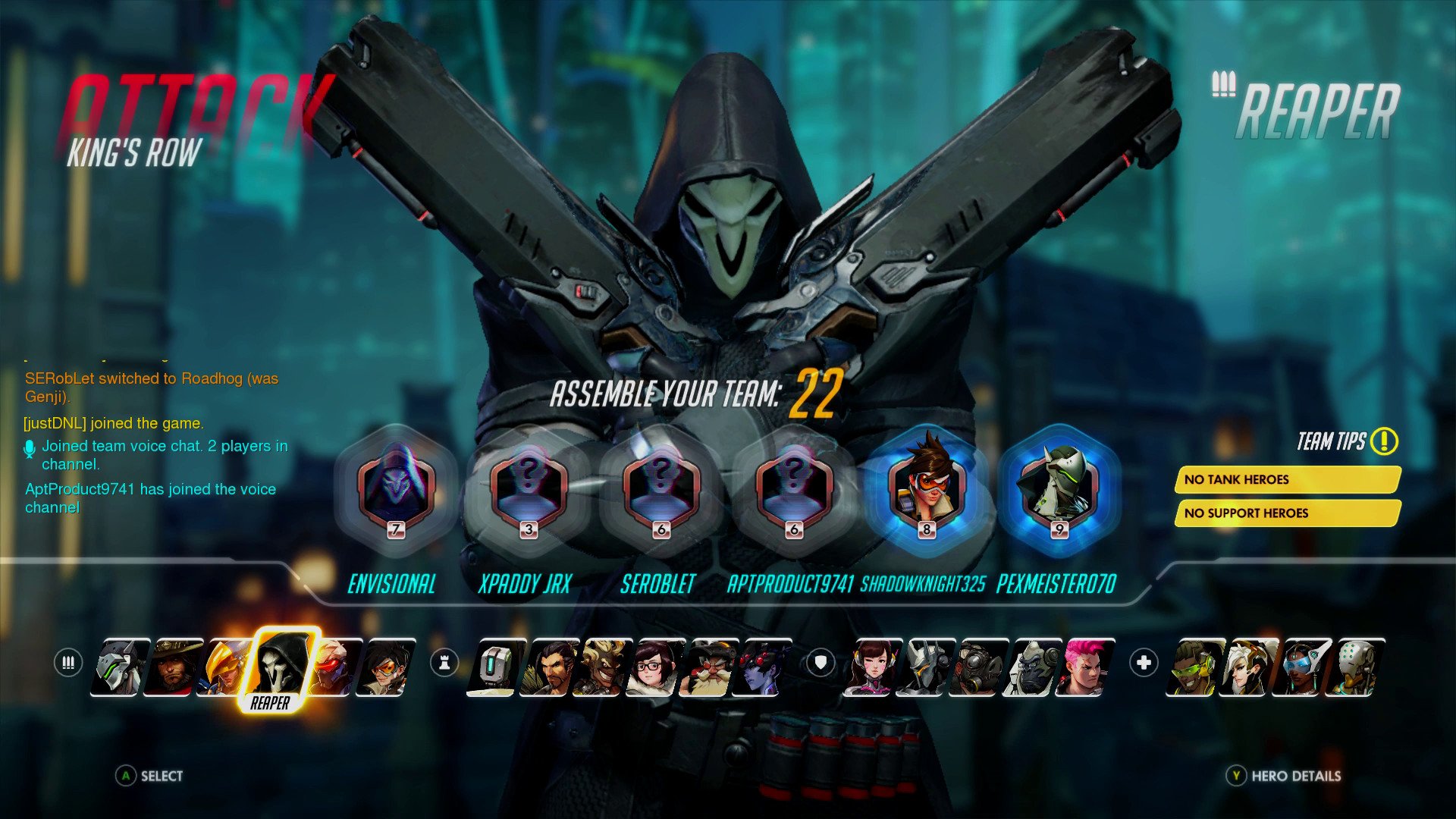
Various systems have been implemented to push this class-based mentality and encourage players to experiment with different play styles. Ahead of each match, the character selection screen gives prompts to adjust your team if an uneven distribution of classes has been chosen. This pushes players to frequently switch between multiple play styles, which improves the pacing of the game.
Despite this drive to change up your play style, transitioning between multiple characters can be somewhat jarring. While the fundamental game mechanics are universal, each character has their own learning curve and abilities to digest. This is somewhat aided by a built-in tip tool, which briefly explains all of the abilities of your current character. I can see how having extensive knowledge of every hero would help massively when determining the countermeasures to be adopted in-game. With so many unique abilities at the player's disposal, tracking each character's load out has proven to be quite the challenge.
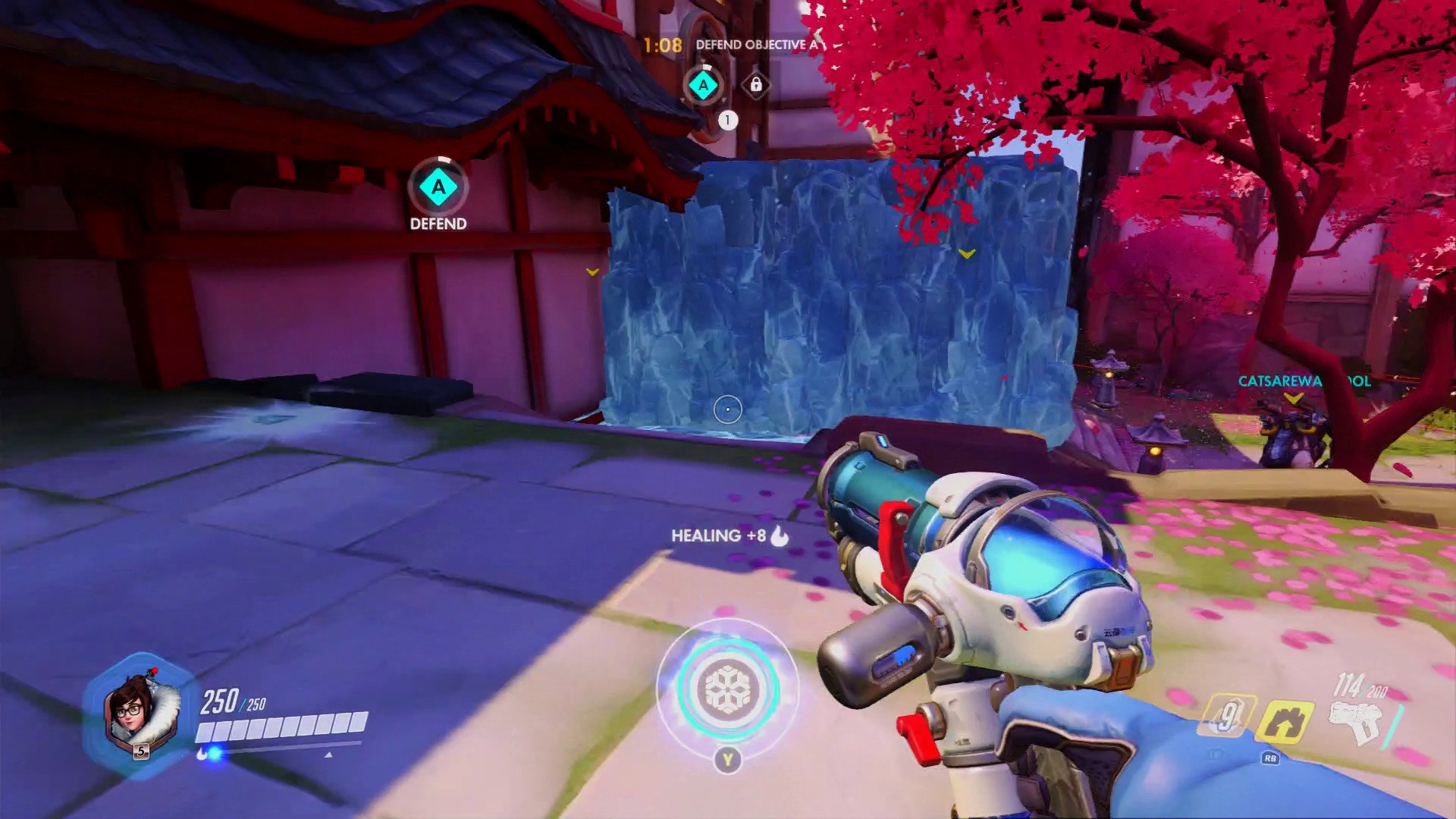
Get on the payload
Level Design
In terms of level design, Overwatch does nothing to distinguish itself from the crowd, but provides a successful, if formulaic, bevy of stages for arena battles. Closely designed alongside the characters, the game's expansive maps provide a variety of opportunities for all kinds of play style. A majority of Overwatch's levels are expansive, but smaller details haven't been spared in the process. All of the game's maps have a huge variety in terms of play space and verticality, to take advantage of each class in the game's roster.
"The small amount of content offered by Overwatch soon results in repetitive gameplay"
At launch, Overwatch currently boasts twelve multiplayer maps across a number of exquisite locales. The maps have been specially designed for one of the four game modes and support that sole mode exclusively. As a result of this, there are only three maps per game mode, which quickly gets repetitious. While more characters and maps are scheduled to be added at a later date, the amount of content at launch feels limited for a multiplayer-only experience.
This comes to my major gripe with Overwatch, regarding the content offered for the $59.99 price tag. While multiplayer-only experiences have proven successful in the past, the small amount of content offered by Overwatch means repetitive gameplay. Despite the game delivering some of the most consistent and polished gameplay in shooter history, a lack of substance could harm its player base in the long run.
Justice rains from above
Progression
Overwatch's progression system is simple, yet surpasses everything it sets out to accomplish. Unlike many modern first-person shooters, where performance-based unlocks are obtained, Overwatch's progression is strictly cosmetic. By completing games players earn Loot Boxes, which contain a random assortment of items such as skins, emotes and voice lines. These drops can be bypassed by spending in-game credits, or purchasing Loot Boxes from the Xbox Store. While I'm often against microtransactions, these subtly implemented purchases are exclusively for superficial items that don't affect gameplay.
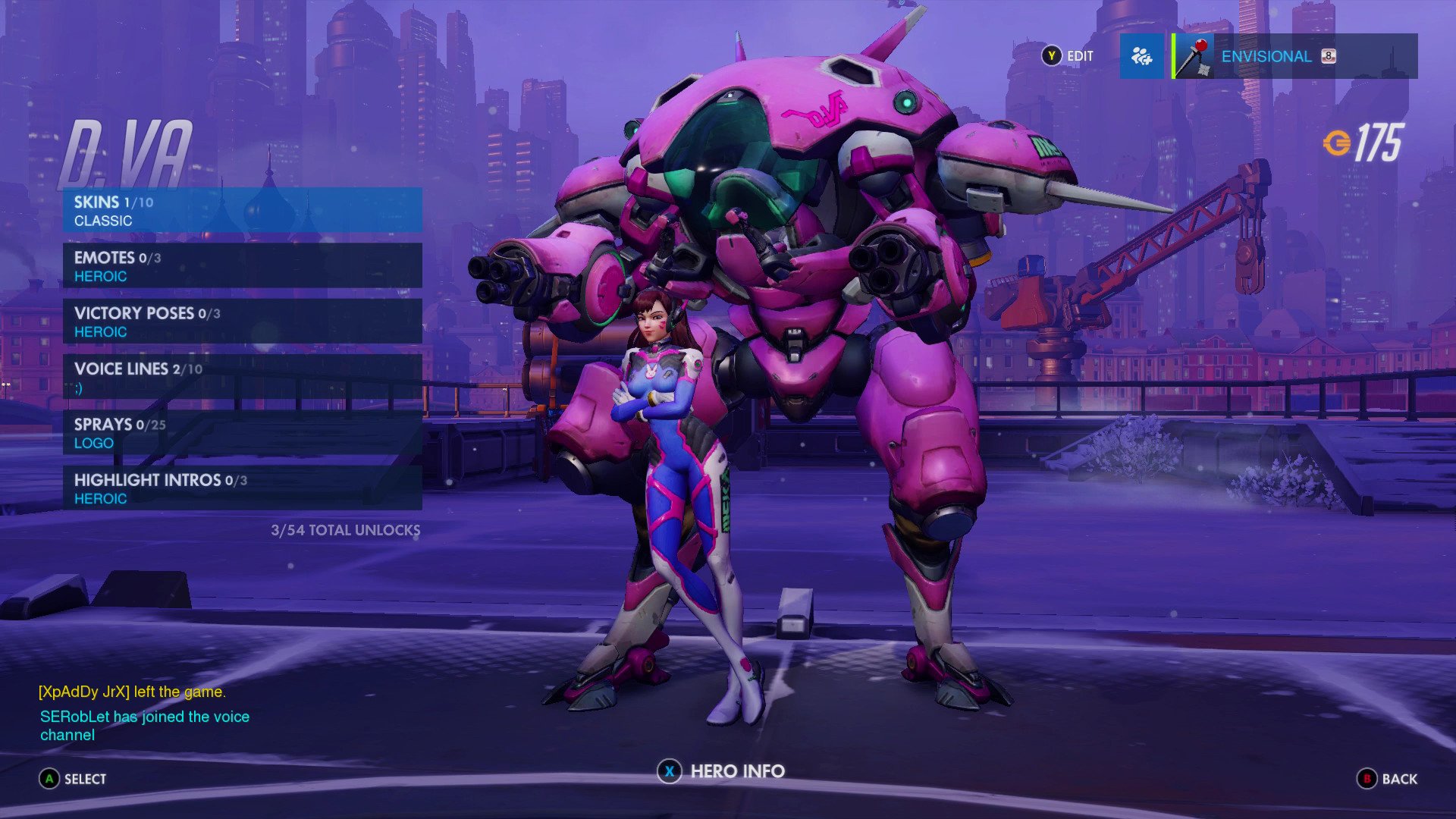
Lights out
Conclusion
When I first started Overwatch, I wasn't particularly impressed, but as I invested more time, the game continued to unfold. What I initially thought of as a shallow shooter rapidly expanded into a deep and polished experience, which I hope grows alongside the community. With flawless and varied character design there's something unique for everyone, combining the most desirable attributes from the biggest shooters of today. Blizzard's ability to perfect a game's balance has come to light once again, creating one of the most exhilarating multiplayer shooters this generation.
Pros:
- Robust, polished gameplay
- Perfectly balanced, despite complexities
- Thoroughly developed personas
Cons:
- Lack of content at launch
This review was conducted on Xbox One using a copy purchased by the reviewer.
Matt Brown was formerly a Windows Central's Senior Editor, Xbox & PC, at Future. Following over seven years of professional consumer technology and gaming coverage, he’s focused on the world of Microsoft's gaming efforts. You can follow him on Twitter @mattjbrown.
